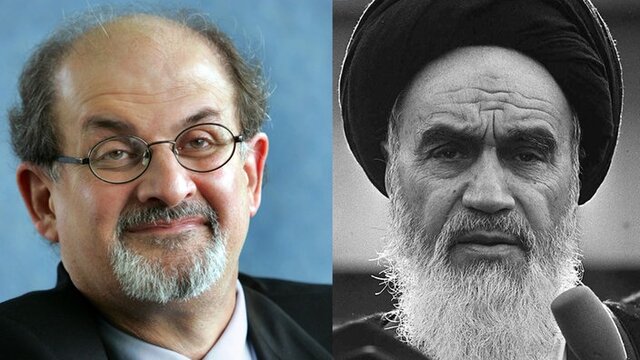The knife attack on the Indo-British writer Salman Rushdie, whose assassination was announced in 1989 by the leader of political Shiism, Khomeini, is used by some individuals as news to mobilize Muslims. However, without much success, because for most conscious Muslims today, this name not only means little, but is simply not very interesting.
And it is not surprising… Rushdie was made a “star” almost half a century ago by the late Khomeini, in whose works, by the way, one finds many things for which he would have lost his head on a stake in a Sunni Islamic state if he had wanted to. And this happened as a result of a hunt being declared for him on the basis of one of his novels, with constant public agitation and increasing stakes with a bounty on his head.
What was the reason for this? In his novel “The Satanic Verses,” characters were portrayed in an indecent manner that could be associated with the Prophet Muhammad, peace be upon him, and his wives, may Allah be pleased with them. However, the figure that many took to be the image of the Prophet Muhammad, peace be upon him, has a different name, so it is indeed an association, although it is provoked by the whole course of the story.
And we won’t even touch on the question of the applicability of Sharia norms regarding the punishment for blasphemy under the conditions of a non-Islamic state in which this book was written. Why not? Because there have long been much more obvious and timely reasons to discuss this issue. Muslims have long had to deal with those who openly, crudely, and obscenely insult the Prophet Muhammad, peace be upon him, the Book of Allah, publicly burn its manuscripts (mus’haf), and so on.
Under such conditions, it is a strange choice of priorities to continue to hunt for a person who wrote a book half a century ago whose main characters can only be associated with the most beloved people in a Muslim’s heart. The solution may be that at the time of its publication, this book was directed not only against Islam, but specifically against Khomeini, with whom one of its characters can also be associated. So the Khomeinist regime saw it as a challenge to him and continued to hunt Rushdie as an enemy, as always, ignoring Muslim priorities.
And now, if you look closely, you can see that people who are mentally stuck in the last century and are devoted to the Khomeinist “Islamic revolution” are usually trying to stir up jubilation in the Muslim space in connection with the attack on Rushdie. For modern Muslims who understand his value, this is simply not interesting. Of course, this does not imply the slightest sympathy for the provocateur. Those who deliberately play with fire should be prepared to be burned by it. But in our time, when many people are dying every day in ongoing wars, this is not really the kind of news that can generate interest.

